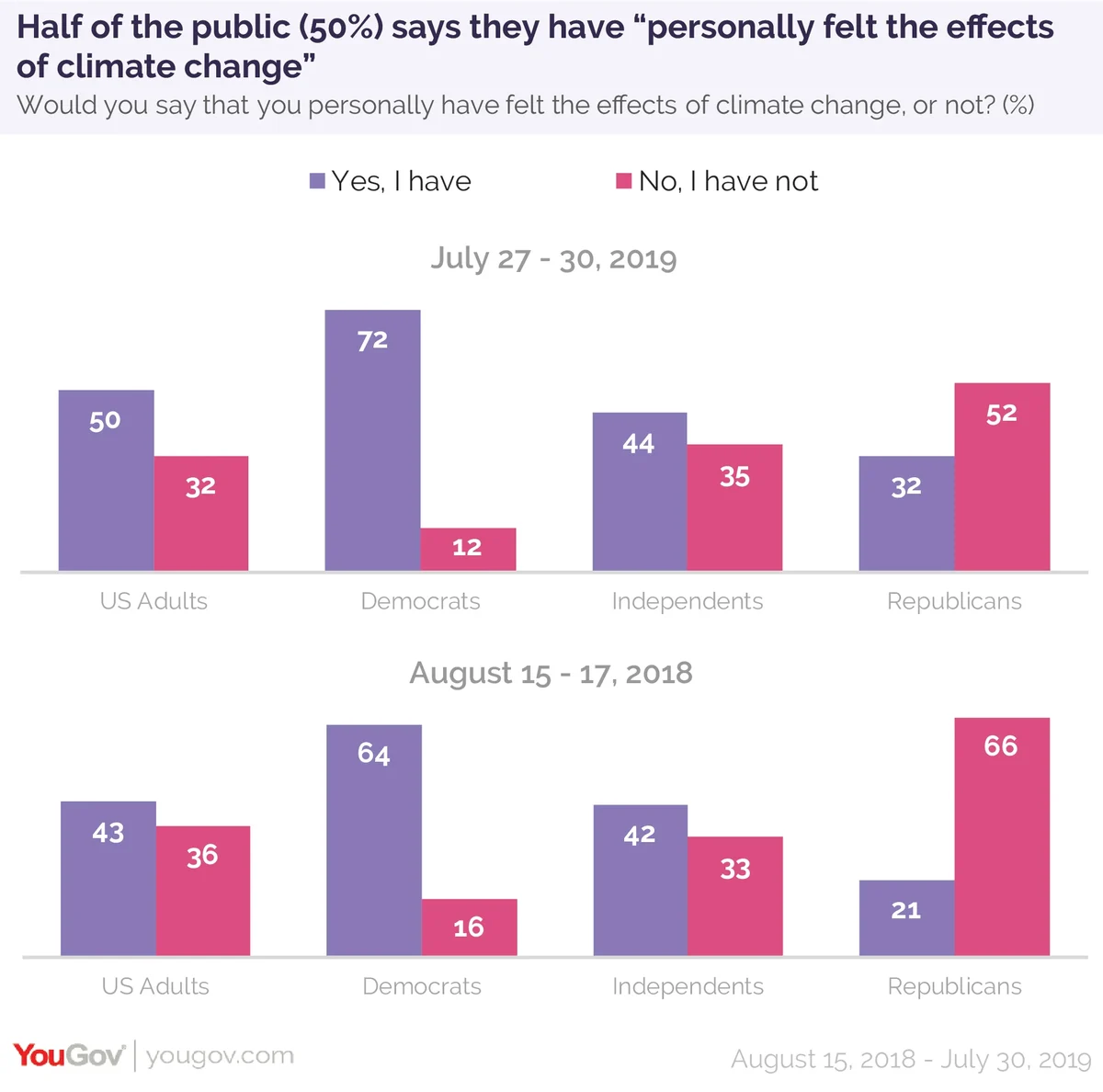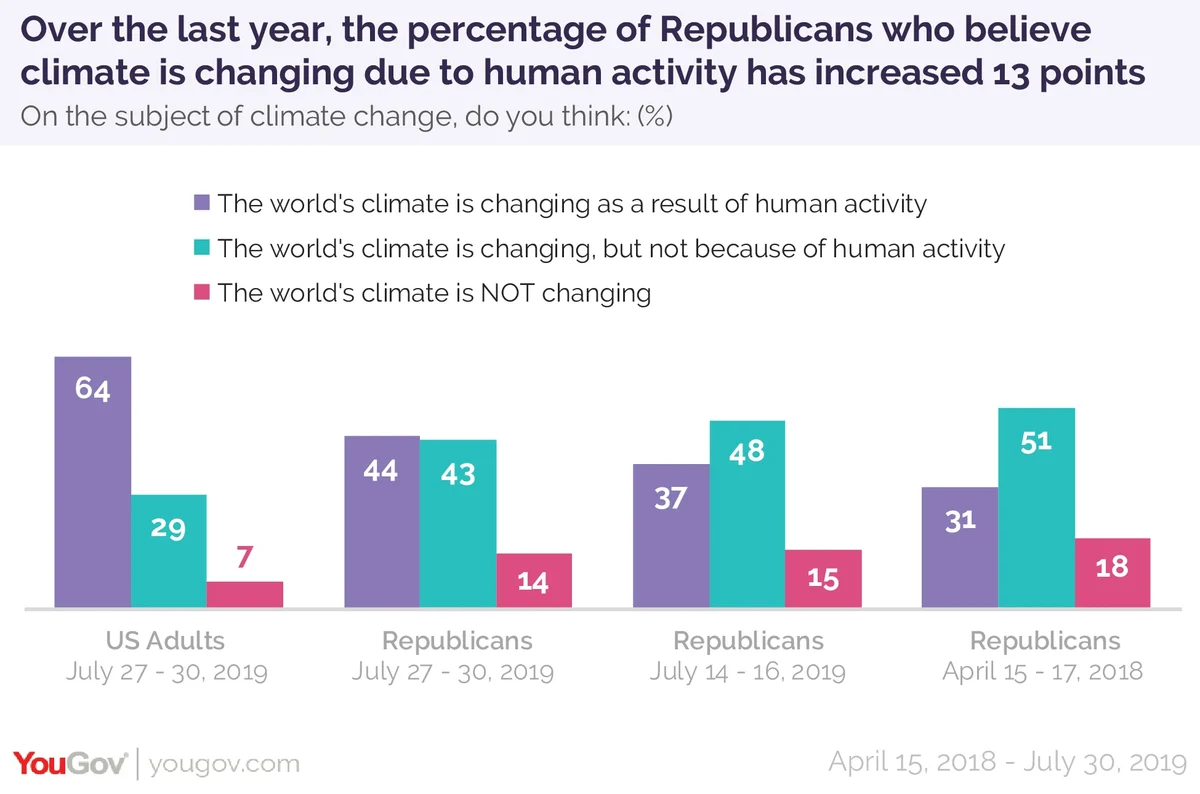Heatwaves in Europe and in the United States may have done more than winter storms and hurricanes to convince Americans that climate change is real. In the latest Economist/YouGov Poll, half the public say they have personally felt the effects of climate change, which is up seven points from a year ago.

Republicans are 11 points more likely to say they have felt the effects of climate change personally than they were a year ago.
That matters. If you personally experienced any impact of severe weather, you are more likely to accept that climate change has happened and that human activity has caused it. Nearly nine in 10 American adults who say they have experienced the effects of climate change also say it is caused by human activity. Those who haven’t experienced the effects on a personal level, while not climate change deniers, put the principal cause outside of human control.
It impacts members of both political parties. In this poll, Republicans are as likely to attribute climate change to human activity as to believe it is not, but most agree that climate change is taking place (just 14 percent of Republicans are complete climate change deniers). In just the last few weeks, the percentage of Republicans who believe the world’s climate is changing due to human activity has risen seven points.
Over the last year, it has jumped 13 points. Republicans who have felt climate change effects are four times as likely as those who have not to agree.

Half of US adults now attribute high summer temperatures to climate change, up seven points from the last time the question was asked about the weather changes a year ago. But a third disagree. That includes a majority of Republicans. However, Republican skepticism about the impact of climate change on weather patterns has dropped the last year: now 52 percent of Republicans don’t attribute severe weather to climate change. Last year 66 percent did.
But Republicans remain skeptics in many ways and 59 percent say the threat of climate change has been exaggerated. Only one-third rate the environment as a very important issue for the country (a majority of all adults do, as do three-quarters of Democrats). And while Democrats rank the environment just behind health care as the country’s most important issue, five times as many Republicans cite immigration as mention the environment.
Nearly as many Republicans say the government is doing too much as say it is doing too little to protect the environment.
One area of general partisan agreement is the CAFE (Corporate Average Fuel Economy) Standards. Few – Republicans and Democrats – would decrease them, something that President Donald Trump is expected to do in the near future, after having ordered an Environmental Protection Agency review in his first year in office.
Only 11 percent of the public would support adopting no national fuel efficiency standard, and a majority believe a national standard is preferable to state by state standards. Despite that preference for a national standard, by 46 percent to 25 percent the public would allow states to set their own – stricter – standards, something the state of California has just negotiated with Honda, Ford, BMW and Volkswagen.
See the full toplines and tables results from this Economist/YouGov poll.
Image: Getty









